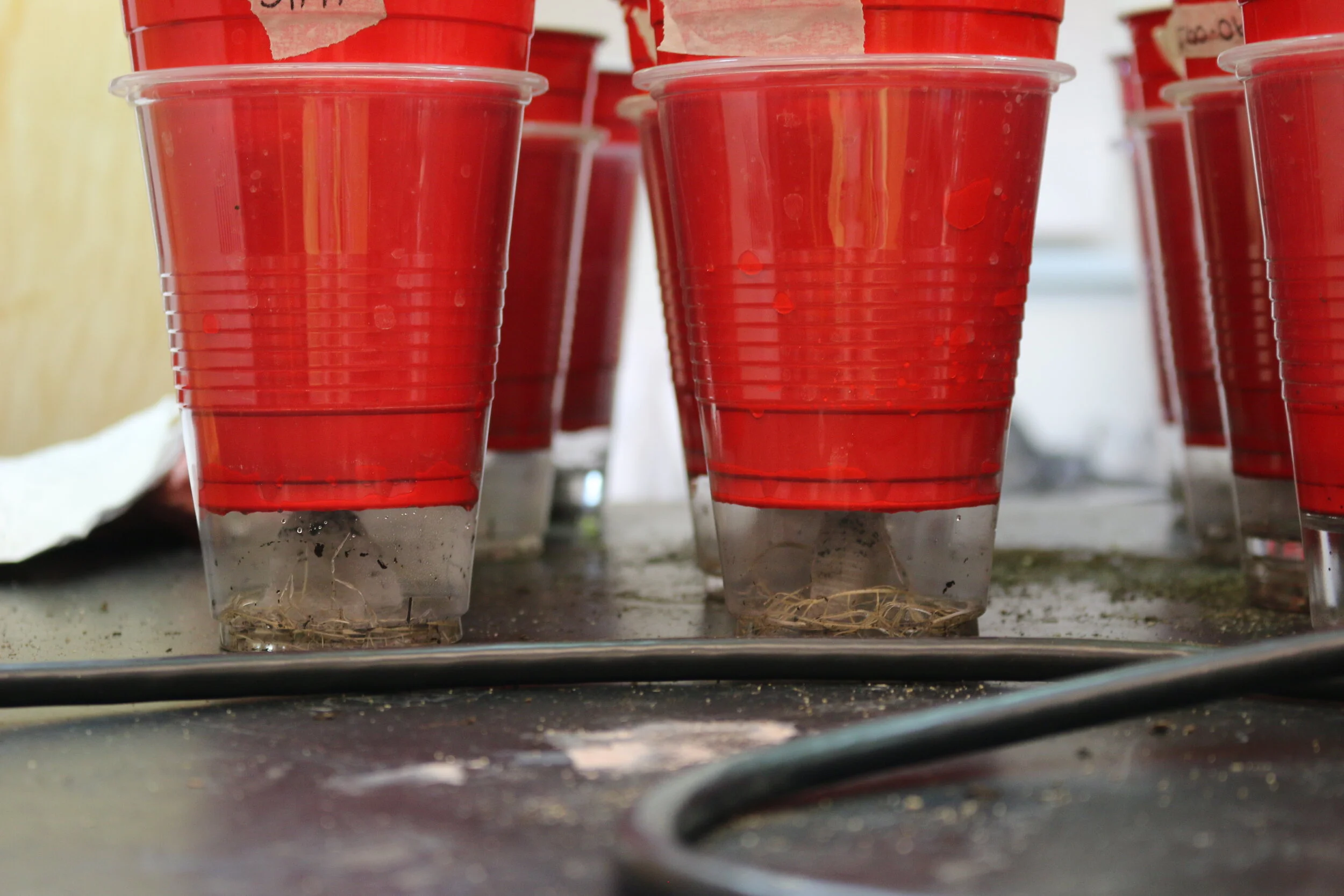See how our Compost Tea applications can benefit your unique needs
We can take a soil sample to reveal if a growing medium contains the fungal:bacterial ratio (F:B) for optimal growth and health of your plant life; which lets us know what changes need to be done to achieve optimal growth if the soil biology is insufficient for your plant’s sustainability.
Plant succession is directly correlated with soil biological succession. A soil that has a F:B of less than 0.1 will host plants that are not desired, such as Dandelions, Canada Thistles, Crabgrass, etc., which are commonly known as weeds. These weeds tend to spread rapidly especially with the addition of minerals like nitrogen, phosphorus, and potassium. As the soil F:B ratio increases, plant succession increases. Early Grasses, Brassicas, Mustards begin to out-compete the weeds at an F:B ratio equal to 0.3. Mid-grasses, vegetables, and typical garden plants/flowers, late successional grasses, and row crops begin to thrive as the F:B increases from 0.3 to 1:1. Woody type plants - deciduous and coniferous trees flourish as the F:B ratio increases from 1:1 to greater than 100:1. Have you noticed that old established forests lack the diverse ground vegetation and early established weeds? This is due to not only a lack of sunlight on the forest floor but also the extremely high F:B ratios of 100:1 to 1000:1 or more.
Since compost tea is an all natural liquid formulation and is comprised of low mineral salts (nitrogen, phosphorus, potassium), there is no worry of plant harm in excess use, which means that compost tea can be used at any time to either change or maintain a good biological soil balance. Compost tea will easily flow through hydroponic or similar irrigation systems. We can inject compost tea into soils up to 8” deep, apply topically (broadcast spray) to lawns and under trees, or spray the foliage of crops, shrubs, or trees.
Take a look at the Studies below for several papers, reviews, and videos on the significance of compost tea use on plants and crops, and the abilities of compost tea to promote growth and hinder disease.
























